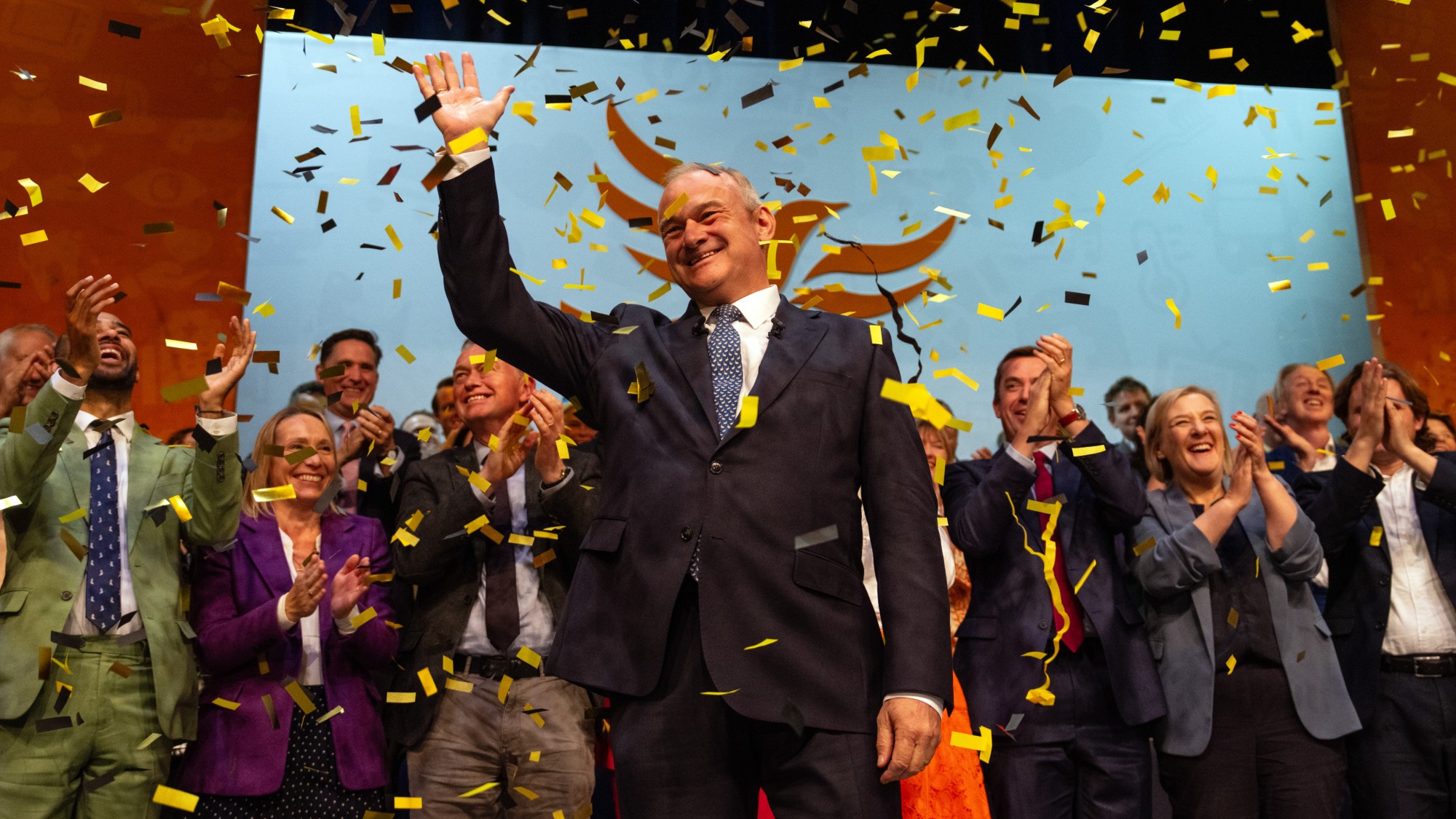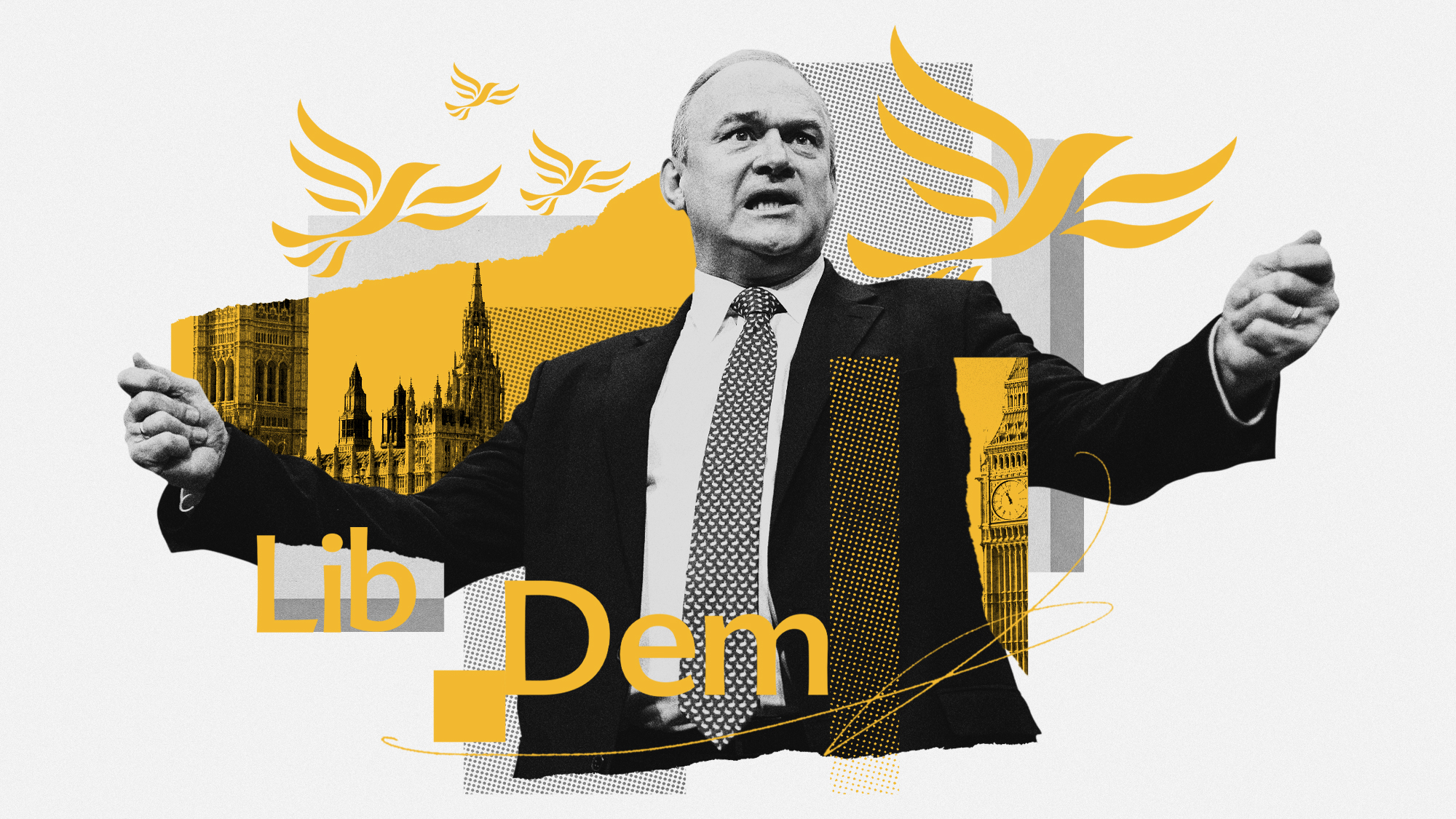Lib Dem leadership: The runners and riders
Jo Swinson's announcement that won't stand has blown the race to replace Tim Farron wide open

A free daily email with the biggest news stories of the day – and the best features from TheWeek.com
You are now subscribed
Your newsletter sign-up was successful
Lib Dem MPs are gearing themselves up for a leadership contest following former leader Tim Farron's resignation.
The party won 12 seats at this month's general election, with several of the party's heavyweights, including Vince Cable, Jo Swinson and Ed Davey, winning back seats they had held before the party's dismal showing in 2015.
However, despite his party's relative success, Farron stepped down last week, saying he was "torn between living as a faithful Christian and serving as a political leader".
The Week
Escape your echo chamber. Get the facts behind the news, plus analysis from multiple perspectives.

Sign up for The Week's Free Newsletters
From our morning news briefing to a weekly Good News Newsletter, get the best of The Week delivered directly to your inbox.
From our morning news briefing to a weekly Good News Newsletter, get the best of The Week delivered directly to your inbox.
Swinson, who was equalities minister in the coalition government, was the bookmakers' favourite to replace him, but this weekend she took herself out of the running and announced she would stand for deputy leader instead.
In a blogpost, the MP for East Dunbartonshire said she had been "overwhelmed" by messages urging her to stand as Farron's replacement.
"Being the leader of a political party is a unique and all-encompassing job, even more than the roles of MP and minister that I have undertaken before," she said.
"It should not be done simply to achieve status, to make a point, or to please others."
A free daily email with the biggest news stories of the day – and the best features from TheWeek.com
Leadership contenders require the backing of at least one other MP and then face a vote by the party’s 102,000 members. The result is expected to be announced before or at the party’s September conference.
So who is still in the running?
[h5]Sir Vince Cable
Perhaps the best known of Farron’s potential successors, Cable had "a reputation as a sober economic voice before the financial crisis and during the coalition years", says the Financial Times.
He has returned to the theme, warning of a "second economic storm" caused by Brexit and pitching the Lib Dems as the "party of business".
The 74-year-old MP for Twickenham, who has dismissed claims he is too old for the role of leader, fought his fought his constituency campaign on an agenda of opposing school cuts, promoting further education, protecting hospitals and supporting small businesses.
Counting against him may be that he was "suspected of trying to dislodge Nick Clegg as leader in 2014", says the FT. In his memoir, the party's former leader said Cable was not one of "nature’s keenest team players".
Sir Edward Davey
The former energy secretary won back his Kingston and Surbiton seat from the Conservatives this month.
As part of the coalition cabinet, Davey claimed credit for leading the bid to secure a "massive increase" in renewable electricity in the UK and for "winning concessions from the Treasury over a potential target to slash emissions from the power sector by 2030 and preserving targets to cut emissions in the mid-2020s," says the Daily Telegraph.
He also co-authored the 2004 Orange Book, which stressed the benefits of the free market in tackling social problems, although it divided opinion within the party.
Since then, Davey has attempted to take a more radical stance on issues, telling Warwick University student newspaper The Boar he thought the Lib Dems had made a mistake in positioning themselves as a centrist party.
"I’m not a Liberal Democrat because I’m in the centre. I want to reform things. I’m not happy with the establishment," he said.
Norman Lamb
Lamb was one of the few to keep their seats in 2015 and has been MP for North Norfolk since 2001. He was also a minister in the business and health departments during the coalition and ran unsuccessfully against Farron in 2015, losing by 43.5 per cent to 56.5 per cent.
The BBC says the 59-year-old politician has "a support base among party members, who believe he would adopt a more 'centrist' approach than Farron" and would be "less gung ho about opposing Brexit than the former leader".
Surprisingly Lamb supported the early career of rapper Tinchy Stryder, "remortgaging his home to help finance the grime star's early recordings" says the Telegraph. His son Archie is also on Stryder's management team.
-
 How the FCC’s ‘equal time’ rule works
How the FCC’s ‘equal time’ rule worksIn the Spotlight The law is at the heart of the Colbert-CBS conflict
-
 What is the endgame in the DHS shutdown?
What is the endgame in the DHS shutdown?Today’s Big Question Democrats want to rein in ICE’s immigration crackdown
-
 ‘Poor time management isn’t just an inconvenience’
‘Poor time management isn’t just an inconvenience’Instant Opinion Opinion, comment and editorials of the day
-
 How corrupt is the UK?
How corrupt is the UK?The Explainer Decline in standards ‘risks becoming a defining feature of our political culture’ as Britain falls to lowest ever score on global index
-
 The high street: Britain’s next political battleground?
The high street: Britain’s next political battleground?In the Spotlight Mass closure of shops and influx of organised crime are fuelling voter anger, and offer an opening for Reform UK
-
 Is a Reform-Tory pact becoming more likely?
Is a Reform-Tory pact becoming more likely?Today’s Big Question Nigel Farage’s party is ahead in the polls but still falls well short of a Commons majority, while Conservatives are still losing MPs to Reform
-
 Taking the low road: why the SNP is still standing strong
Taking the low road: why the SNP is still standing strongTalking Point Party is on track for a fifth consecutive victory in May’s Holyrood election, despite controversies and plummeting support
-
 The Liberal Democrats: on the march?
The Liberal Democrats: on the march?Talking Point After winning their highest number of seats in 2024, can the Lib Dems marry ‘stunts’ with a ‘more focused electoral strategy’?
-
 Can the Lib Dems be a party of government again?
Can the Lib Dems be a party of government again?Today's Big Question Leader Ed Davey is urged to drop the stunts and present a serious plan for the country
-
 What difference will the 'historic' UK-Germany treaty make?
What difference will the 'historic' UK-Germany treaty make?Today's Big Question Europe's two biggest economies sign first treaty since WWII, underscoring 'triangle alliance' with France amid growing Russian threat and US distance
-
 Is the G7 still relevant?
Is the G7 still relevant?Talking Point Donald Trump's early departure cast a shadow over this week's meeting of the world's major democracies